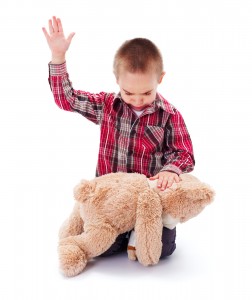
We are all human. Sometimes you say things you don’t mean. Or, you say things because you’re reacting rather than thinking. Maybe you just said something in jest, teasingly.
Unfortunately, these words are the ones your kids are most likely to remember, precisely because you said them without thinking about it. Whatever you said was uttered with so much emotion and energy, even if said in a whisper, that this energy struck a chord within your son or daughter.
Some kids may not believe these emotional words. Others may be wounded to the core.
Your job as a parent is to help your children have such a strong connection with their true selves that they won’t believe the untrue words said by others. You can do this by being their constant source of encouragement and support. Regardless, when words that don’t feel good come from someone they love, adore, or admire, like a parent, best friend, favorite coach, or teacher, it can shake a child and cause them to doubt themselves.
A woman I know was often called “Grace” by her family. Every time someone saw her bump into anything, or trip, they would teasingly call her by this nickname. It became so ingrained in her she became convinced that she was accident prone.
Because she believed she was accident prone, she attracted lots of opportunities to get injured. As a child, her parents took her to the emergency room on numerous occasions, which just reinforced the nickname.
Naturally since their daughter was accident prone, they kept a tighter watch over her and discouraged her from participating in many activities that she wanted to try. Her parents weren’t unkind; they were trying to keep their daughter from what they saw was inevitable harm.
As an adult looking back over her life, “Grace” was able to recognize that she was no more prone to accidents than other active children. She often got injured because she was trying to keep up with the older kids or pushing herself to be better and stronger. This was her natural tendency and rather than be supported and allowed to flourish in a safer environment, she was taught to disown her desires.
Unfortunately, simple nicknames or words spoken without thinking can have lasting effects. When you speak with and about your children, it’s important to think about how those words will feel. Will you always say the right thing? No, but you don’t have to.
Author Toni Morrison asks, “Does your face light up when your child enters the room?”
Of course that is how every child wants to feel; surrounded by love. And parents want that for their children, too. Sometimes that means you have to do a little self-censoring and a little play-acting, if your mood is not in the best place.
When you feel that you are going to say something to your child that doesn’t feel like your face is lighting up, take a deep breath before you speak. If you have already said the words, be ready to apologize and demonstrate with words and actions how you really feel. Are you seeing a trait in your child that you do not want him or her to grow into? Envision what you do want for them. Only call them “Grace” when they are being truly graceful.
Please feel free to comment.
© 2014. Sharon Ballantine. All Rights Reserved.

